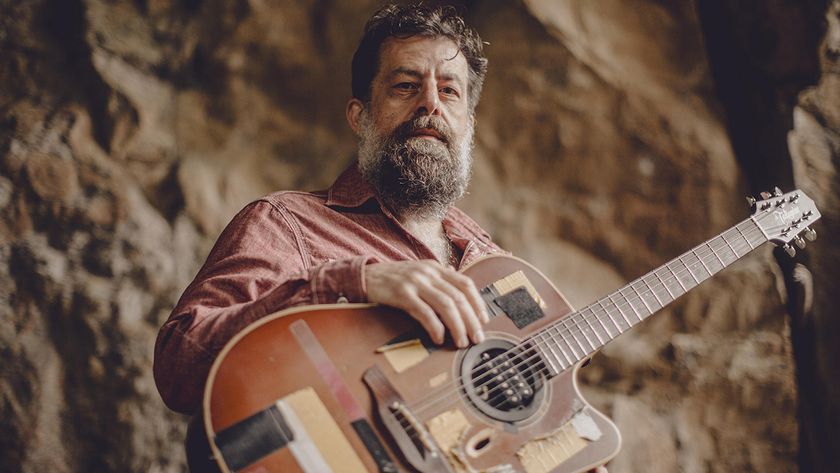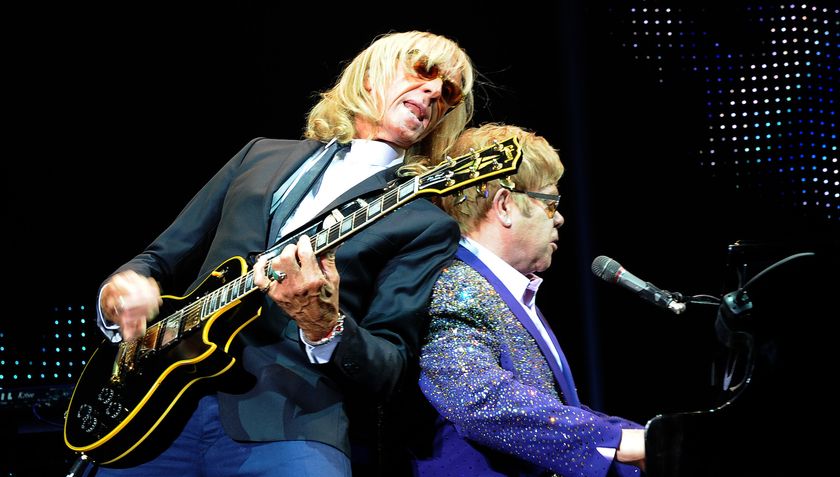Interview: Emphatic’s Lead Guitarist and Songwriter Justin McCain Talks 'Another Life'
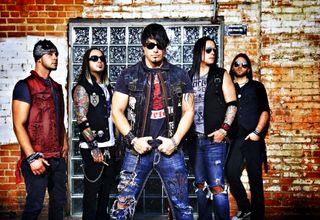
With their major-label debut, Damage, climbing the Billboard Heatseekers charts, and the single “Bounce” doing the same at rock radio, guitarist/songwriter Justin McCain was finally experiencing long-awaited success with his band, Emphatic.
But just as they prepared to join the Carnival of Madness tour, lead vocalist Patrick Wilson fractured his larynx, leaving Emphatic without their singer and bringing in a replacement to complete the dates.
That wasn’t all. With Wilson gone and time going by, McCain knew he had to make some decisions. He split amicably with his managers and record label and began the process of rebuilding his band.
Emphatic today includes former Fuel frontman Toryn Green, guitarist Bill Hudson, bassist Jesse Saint and drummer Patrick Mussack. Their new album, Another Life, was recently released on Epochal Artists Records. The first single, “Remember Me,” entered the iTunes charts at No. 6.
McCain is optimistic about the band’s coming year, and remains steadfast in his determination to continue building on the groundwork that Emphatic previously established.
GUITAR WORLD: When did you part ways with your label and management?
First and foremost, Atlantic and Indegoot were phenomenal in the year and a half that we were together. If you look at it through their eyes, imagine signing a new band and all the work it takes to develop a new band, especially a rock band, these days. That’s a long-term commitment and there’s going to be a lot of money and time invested in doing so.
Get The Pick Newsletter
All the latest guitar news, interviews, lessons, reviews, deals and more, direct to your inbox!
They took that on and they did a brilliant job, but their hands were tied to a certain point because what do you do when the frontman isn’t there? There was only so much they could do with this band before momentum naturally slowed down. When it got to the point that we figured Patrick wasn’t going to come back, and if he did it would take a long time for him to be able to sing the way he used to, during that whole process the record label had a lot more obligations aside from us.
They had several records they were working, so the fire just kind of burned out naturally. It wasn’t anything they did wrong by any means. They weren’t going to pick up our second option because they didn’t know the future of this band. Indegoot and Atlantic told me that they believed in me as a songwriter and businessman, but as far as the band, they just didn’t know what was going to happen. So we all decided to part ways, and that’s the timeframe where I had to think about what I was going to do to rebuild.
Are you self-managed now?
No. Our label deal is an in-house deal, so they’re overseeing management and acting as label as well.
This is your second label deal.
Third. A lot of people don’t know that, but our first deal was with Universal Records. That was four years before the deal with Atlantic. This label is distributed through Caroline. That’s Universal/Capitol, so there are a lot of labels affiliated, and we have some Universal and Capitol people behind us.
You recorded in Los Angeles at Validus Recording Studios. Why did you select that location?
That’s what the label wanted to do. They have an engineer there, Ryan Greene, that they work hand-in-hand with. They asked me how I felt about that, and I said, “Cool, as long as I produce the record and do what I need to do.” Ryan is a phenomenal engineer, and about halfway through I saw that he was the type of guy who works day and night.
One day we were having lunch and I asked if he’d like to be the co-producer He said, “Absolutely,” so I brought him on because I try to be fair to everyone and I saw a guy getting the engineer label and doing more than that. It was an awesome experience all the way around.
After working with Howard Benson on Damage, what were you able to bring to the table as producer of Another Life?
I produced the independent records, except for one that was produced by Matt Noveskey, the bass player for Blue October. We did another independent recording that we didn’t release, and I did that one with Shawn Crahan from Slipknot. We worked with a couple of different people prior to getting a deal. There’s a long history of this band. When it comes down to it, you can learn something from anyone you work with. Working with Howard Benson was a dream come true because he’s one of my favorite producers of all time.
There’s a difference between a producer and an engineer, so when you're talking about a producer, it’s really all art and opinion. We’re not talking pushing buttons and stuff like that. That’s what a good engineer does. From a production standpoint, I wanted to create a record that sounded uniform, where every song had similar tones and they all sounded like they should be on the same record. Part of that is choosing the right songs. Part of that is staying consistent on your tones across the board. But also I wanted to bring new life to it, and that ties into the title. I wanted to make it sound alive and honest. As the producer, it was all about getting the performances.
What made Epochal Artists Records the right label for you?
We have a great partnership with them. They’ve been absolutely phenomenal. They’d seen our history, they pay attention to sales and charts, and they came to this knowing that they had some work to do to take the next step with the band, but also respecting that we put a lot of work into it. They legitimately liked the music prior to this new record and they believed in it. That made them believe in me, because I was the primary writer and the one who took care of business, so they gave me a lot of room to do what I wanted to creatively.
They allowed me to produce the record. I wrote all kinds of songs, and when I brought in Toryn, he and I sat down and went over songs I had and songs he had and worked on things together, so as far as the creative process, we were allowed our space and time to do what we needed to do. The label has been really good about that. We’ve done a lot of stuff and so have they, but ultimately it comes down to a team, a partnership, and the decision made between the label and I, so it’s a good situation.
Photo courtesy of Epochal Artists
Read more of Justin McCain’s interview here.
— Alison Richter
Alison Richter interviews artists, producers, engineers and other music industry professionals for print and online publications. Read more of her interviews right here.


Alison Richter is a seasoned journalist who interviews musicians, producers, engineers, and other industry professionals, and covers mental health issues for GuitarWorld.com. Writing credits include a wide range of publications, including GuitarWorld.com, MusicRadar.com, Bass Player, TNAG Connoisseur, Reverb, Music Industry News, Acoustic, Drummer, Guitar.com, Gearphoria, She Shreds, Guitar Girl, and Collectible Guitar.
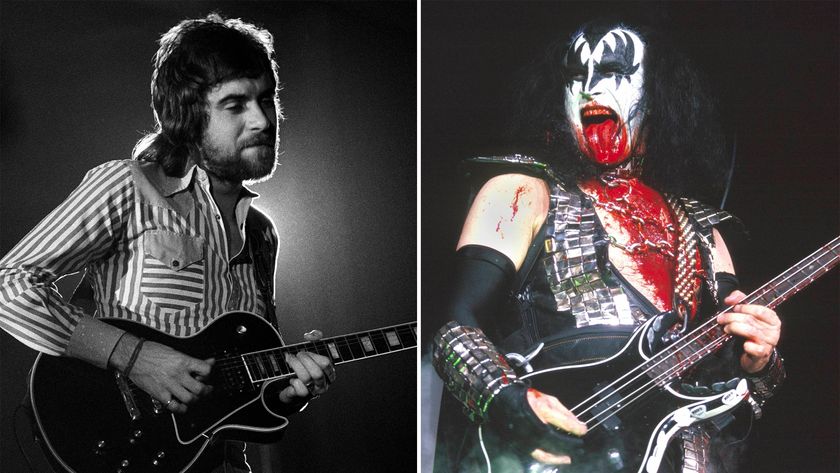
“I had to use the same microphone that Gene Simmons used with all the blood coming out of his mouth. Can you imagine that!”: Mick Rogers recalls Kiss supporting Manfred Mann's Earth Band in their early days
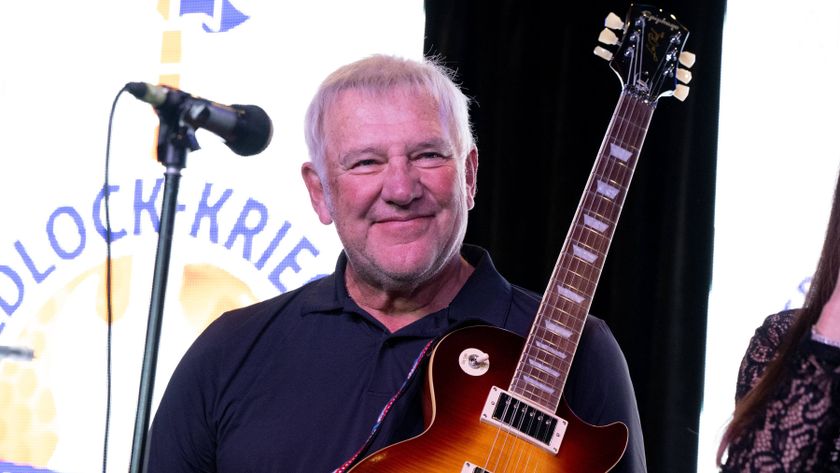
“It’s a whole new generation in sound. There’s nothing lacking”: Alex Lifeson reveals the gear that has finally converted him to digital modeling








